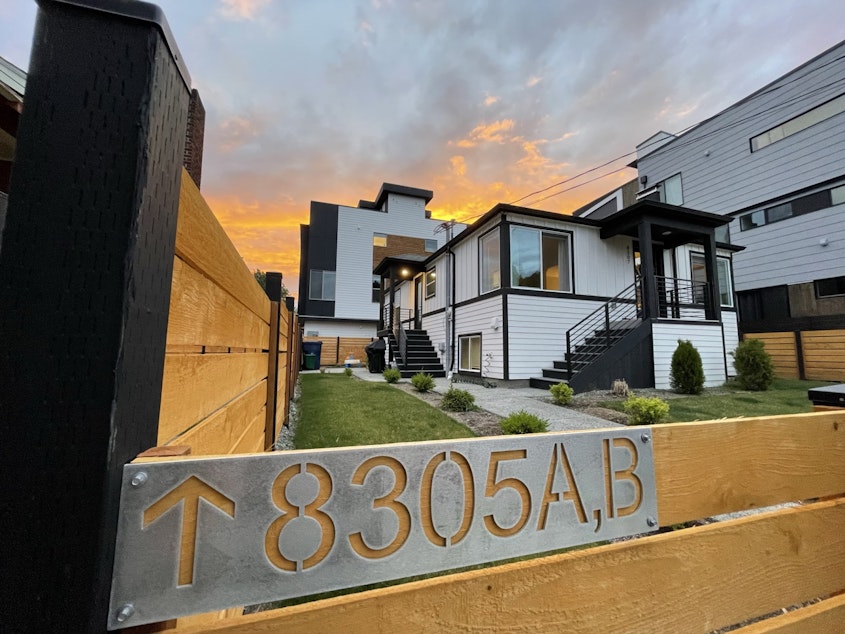Sound it Out: Listeners respond to WA's 'middle housing' bill

At its core, Soundside is about connecting with our listeners and bringing you stories you care about and that impact those of us living here in the Pacific Northwest.
Each week we ask for your thoughts about our stories — where they've succeeded and where they can improve. This week, we look at our coverage of HB1110.
The bill, which recently passed the Washington state Senate, aims to fix a lack of "middle housing" by increasing density in cities across the state.
Depending on the size of a city, duplexes, fourplexes, and six-plexes will be allowed in single-family zoning.
A number of listeners called in taking issue with this bill being conflated with affordable housing.
Sponsored
KUOW reporter Joshua McNichols spoke with Patricia Murphy on Seattle Now about the latest developments for the bill and about affordable housing provisions in the legislation.
McNichols said that the high cost of homes is driven by a shortage of homes and more supply will help bring down prices, or at least stop them from rising even more. But he added that subsidies are still needed to help people catch up who can’t afford housing.
"This bill adds some density bonuses, like if the owner wants to make some of these homes affordable, they can build a six-plex, for example, at least in the city of Seattle, or Bellevue, or Everett, or Tacoma, and they have to put a covenant on the home guaranteeing that it'll be affordable for 50 years," McNichols said. "It's unclear how many developers will take that deal. If they don't, that affordable housing won't get built, just market-rate housing and government will have to find other ways of incentivizing affordable units."
Parking was another concern from listeners. It was also one of the issues where there was some compromise as the bill weaved its way through Olympia. Originally, the bill's backers wanted to prevent cities from requiring parking spaces in new developments.
Sponsored
"Parking spaces make homes more expensive, and make it harder to fit more homes on a property," McNichols told Seattle Now.
Ultimately, the parking language was controversial. The part of the legislation that would have banned requiring parking was dropped. Cities can now either require parking, or not, in duplexes and fourplexes.
Listeners also wondered how cities could add more capacity to infrastructure like sewers and water systems. For this question, we reached out to the Puget Sound Regional Council, an organization tasked with helping communities in King, Snohomish, Pierce, and Kitsap counties grow via planning informed by Washington state law.
They responded with the following statement:
Sponsored
"It’s good to note that development can’t be permitted without a certificate of available water and sewer. If the capacity isn’t there, it won’t get built. New development may lead to the need to upgrade sewer and water lines and other infrastructure, which may be paid for by the developer. Many cities use impact fees to help cover the costs related to infrastructure improvements. However, many utility systems have excess capacity due to increased water and energy efficiency gains. Houses today use a lot less water and energy than houses built in the '70s. In many areas, using existing infrastructure capacity makes more sense than building new infrastructure to serve new development.”
They also advised us to look at their analysis of potential impacts of the bill.
Thank you to everyone who reached out to us with your thoughts, recommendations, and ways we can improve.





